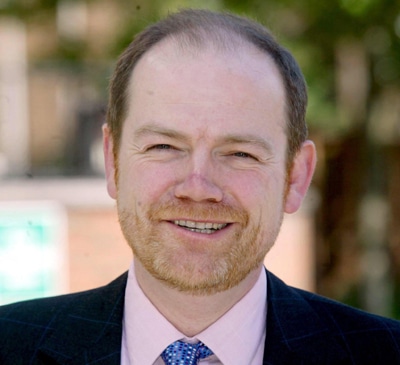
Closing 6Music and the Asian Network may have grabbed the headlines in the BBC’s plan to reallocate a fifth of its licence fee income – but it’s the web that’s bearing the brunt.
“By far the biggest single adjustment is the tightening of focus of the website,” director general Mark Thompson told FT’s Digital Media & Broadcasting Conference, hours after unveiling the strategy that proposes cutting a quarter from the annual web budget and online staff by 2013 (read all the online key points from earlier).
Thompson gave the example of the BBC’s web community for Scotland’s Western Isles: “Actually, those communities are launching their own sites – someone else is doing it – we can step back. In entertainment – we’ve seen a lot of people stepping up in that space – we can draw back.”
In fact, many of the sites which the review document says will close (ie. Celebdaq, Jamie Kane, Street Doctor) have long since been mothballed or stopped updating. Though Thompson said he will halve the number of top-level BBC.co.uk directories, it’s unclear how many total directories exist in the first place (the BBC is due to respond).
Thompson said the metric for closure would be “shutting down extraneous and lower-performing parts” of BBC.co.uk – but which are they? “That 25 percent won’t come out evenly,” he said.
“BBC Online is the future of the whole BBC,” Thompson told the conference. “One day, the web may be the principal, conceivably the only platform for the BBC services.” But: “Some of our critics have a point when they say the limits of what the BBC will and won’t do on the web have been unclear.”
The 2006 Creative Future, which suggested wide-ranging digital activities, was the last significant such proposal, Thompson said. “The fact we’ve needed to do another review so quickly reflects the increased rate at which our world has changed – Creative Future scarcely mentioned social media and pre-dates the world of the iPhone and app store.”
Thompson acknowledged the Putting Quality First strategy “has pretty profound consequences for our services“, but “the environment in which we operate has changed beyond recognition”.
Perhaps a little irate, he tackled, at the same time, this week’s leak of Putting Quality First to The Times and complaints from commercial operators, like Times publisher News Corp. about the free BBC News website: “Whatever you may have read in the newspapers before today – let me be specific – although it may be what the market purists may like, the BBC will not retreat (from online news).”
Indeed, while Thompson told the conference there is “legitimate concern about the size and scope of our activities”, there’s little here for the commercial news publishers who grumble they can’t charge online while BBC News remains free. Because “world-class journalism” is top amongst five newly-expressed corporate priorities – and the review states “News Online will always be free at the point of use”. So Putting Quality First may yet lead to an even better news site.
Asked in a later conference session, Five CEO Dawn Airey said: “They weren’t talking about cutting back – they were talking about reallocating the resources they already have. That’s ducking the issue because I suspect – no, I know – the licence fee is going to be cut. It’s just the beginning. Ask the next government whether he’s done enough – I suspect they’ll say ‘no’. He knows he’s going to come under attack.”
The proposals reinvests £600 million from some lesser-used services in to driving up the “quality” of the BBC’s premier services like BBC Two. Thompson told the conference…
— On the #Save6Music campaign against closure: “6Music has some distinctive programming and very loyal listeners but it’s expensive given its current audience size. We could fix that by doubling or trebling audience size, but the problem then is that it would be competing for the same audience as commercial radio.”
— Numbers on cutbacks: “By 2012, we’ll have delivered around £12 billion in savings – (earlier cutbacks have been) hard but it’s paid for services like the iPlayer.
But soon we’ll have run out of ways to find straightforward year-on-year budget savings, so we’ll have to realise our budget more effectively.”
— BBC costs: “Ten years ago, infrastructure costs used to absorb around a quarter of the licence fee.” By the end of current licence term, it will be no more than £0.09 in every licence fee pound: “That money will go straight in to quality content.”